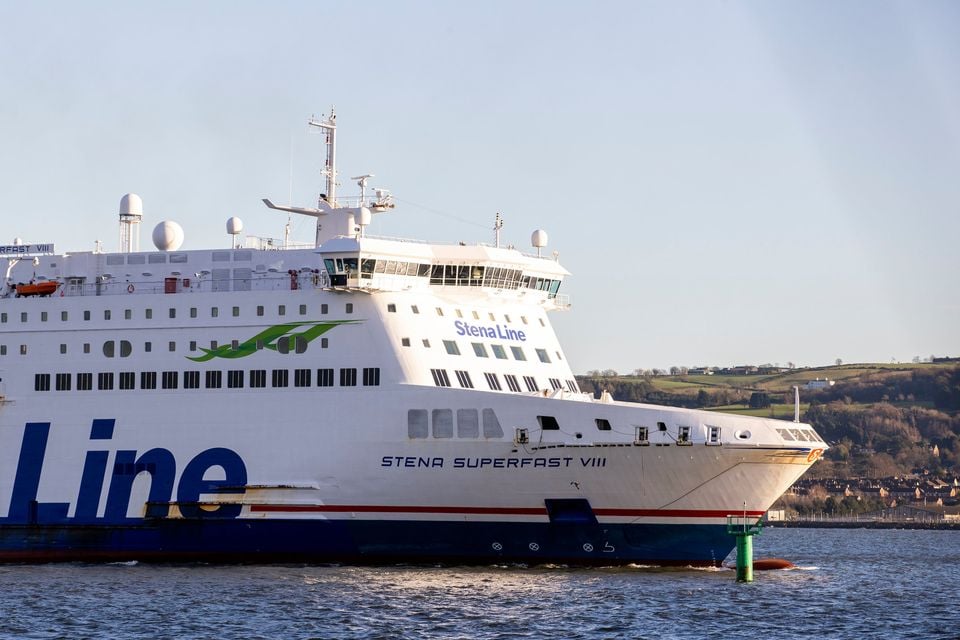Trade through Belfast Harbour increased by 200,000 tonnes during 2024 as the flow of goods and commodities held its own in the face of high energy costs.
The harbour’s trade figures announced today show that it handled 24.1m tonnes of goods in 2024, up from 23.9m tonnes in 2023.
It handled more than 70% of NI’s seaborne imports and exports and 25% of sea trade for the island of Ireland, the harbour said, adding that 2024 was “another record year” for its roll-on roll-off (ro-ro) freight traffic, delivered by customer Stena Line.
There had been 617,000 units of freight though the port, made up of HGVs, smaller commercial vehicles and cars for the motor trade — up from a previous record of 610,000 during 2023.
The number of tourist coaches also increased by 5% to 12,700, while the numbers of ferry passengers was steady at 1.7m, with 500,000 cars passing through.
The harbour said that “the figures demonstrate the importance of Stena Line’s freight traffic routes to Scotland and England to the local economy and reflect continued collective investment in terminals, facilities and ships”.
Stock image: Liam McBurney/PA Wire
Grains and feedstuffs had a record year, rising to 2.46m tonnes, slightly ahead of the previous record volumes of 2.43m tonnes of 2021.
Container traffic ended the year up 3% on 2024, with 124,000 units handled — which the harbour said was an improvement after two years of lower volumes following a post-pandemic high of 131,000 in 2021.
Belfast Harbour also welcomed 145 cruise ship calls in 2024, with 60 ships from 35 cruise lines bringing around 260,000 passengers and crew to the city. It estimated the value of cruise tourism to the economy at between £20m and 25m each year.
Michael Robinson, Belfast Harbour’s port director, said the figures showed that trade remained “resilient” but added: “Like every business, we are mindful of the challenges in the economy, which have affected both our customers and our own operations.
“It is very pleasing to note that, despite these challenges, ro-ro traffic volumes and the number of passengers travelling to and from Northern Ireland reached new record levels, and other categories continued to perform strongly, demonstrating the important role that Belfast Harbour plays in keeping daily life moving.”
